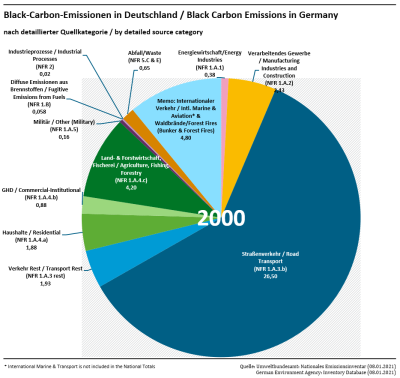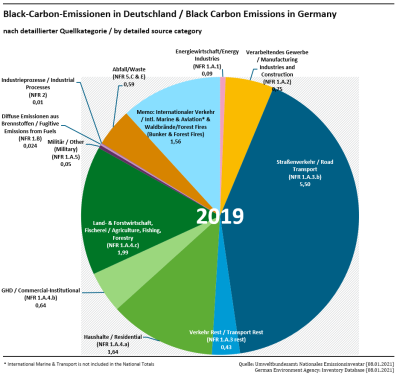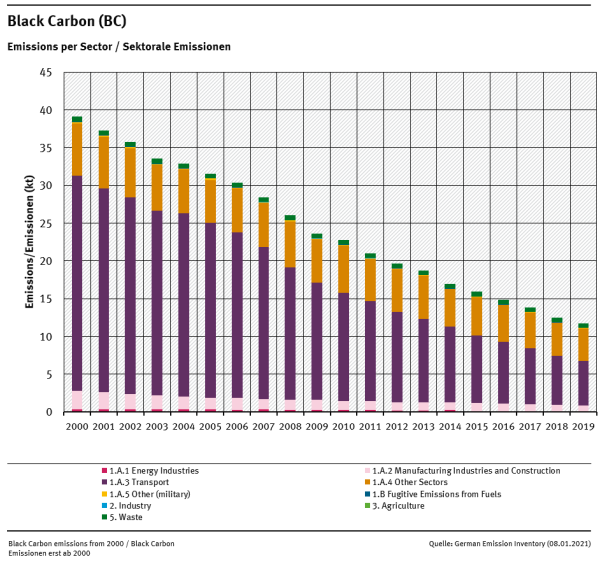meta data for this page
Emission Trends BC
Germany reports Black Carbon (BC) emissions for all years from 2000 onward. The main sources are transport as well as mobile and stationary combustion. Germany uses the EMEP/EEA 2016 Guidebook to estimate BC emissions, augmented by some country specific emission factors, i.e. split factors for the BC portion of PM2.5, in particular in road transport. The following figure provides an overview on the sources and their respective contribution to the German national total.


Main drivers
Total Black Carbon emissions dropped by 70.0% between 2000 and 2019. The main drivers are the transport emissions (NFR 1.A.3) with 73% of total 2000 emissions, and a 79% reduction between 2000 and 2019. Over the whole time series, 90% of the transport emissions come from Road Transport (NFR 1.A.3.b). The overlying trend towards more diesel cars in the German fleet slowed the decrease in emission over this period (see figure below). 18% of the 2000 total emissions are from Other Sectors (NFR 1.A.4), mostly from residential stationary combustion and mobile sources therein, with a 39% reduction between 2000 and 2019.
Black Carbon Emissions 1990-2019
| Total Emissions (kt) | Trend: latest compared to | ||||||||||||
|---|---|---|---|---|---|---|---|---|---|---|---|---|---|
| 2000 | 2005 | 2010 | 2011 | 2012 | 2013 | 2014 | 2015 | 2016 | 2017 | 2018 | 2019 | 1995 | last years |
| 39 | 32 | 23 | 21 | 20 | 19 | 17 | 16 | 15 | 14 | 12 | 12 |  -70.0% -70.0% |  |


